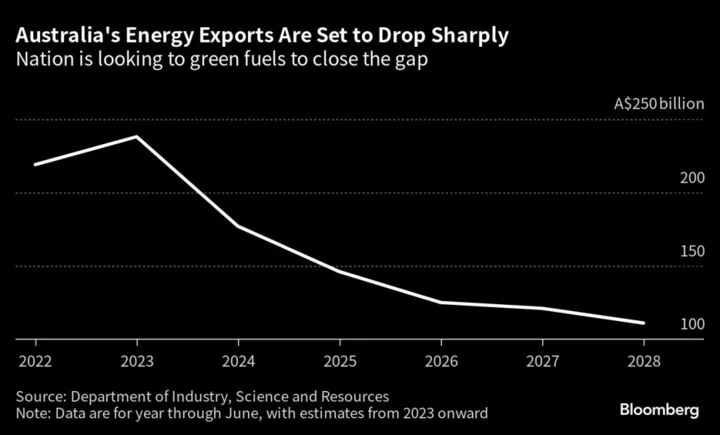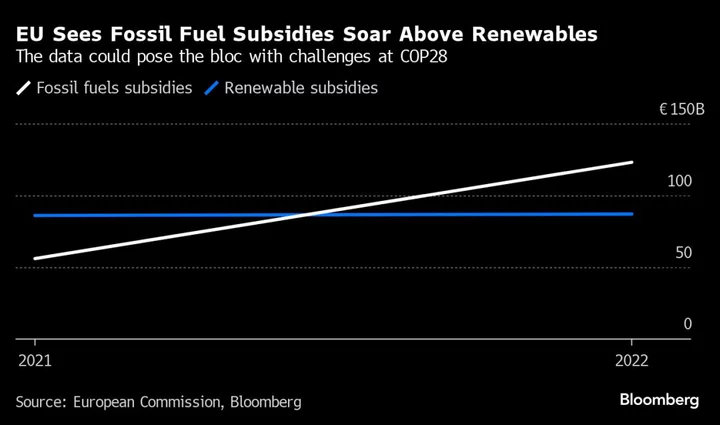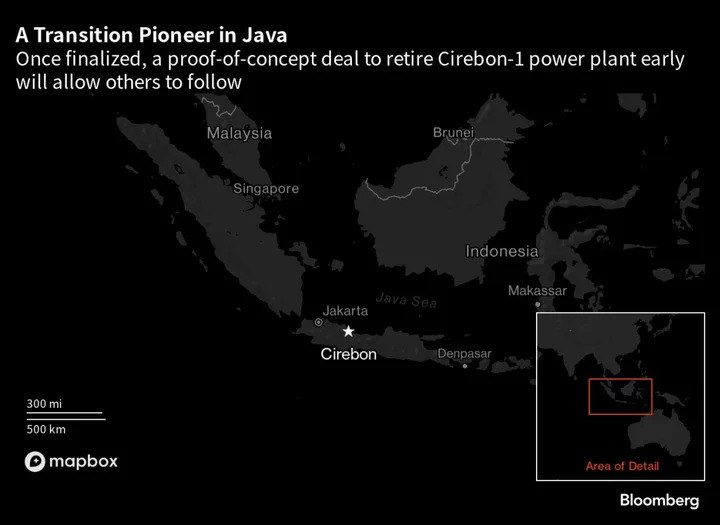Australia’s central bank is developing its capacity to model the macroeconomic implications of climate risks for monetary policy settings, Deputy Governor Michele Bullock said.
The Reserve Bank is also increasing its understanding of how climate risks might translate into threats to financial stability, Bullock, who takes over as governor next month, said in a speech in Canberra on Tuesday.
“The bank is seeking to improve the ability of companies and investors to understand and price climate-related risks,” she said. “We are also monitoring and analyzing climate-related investment trends and their implications for the cost and availability of green and sustainable finance in Australia.”
The speech comes just days after a government report found that Australia could face economic losses of as much as A$423 billion ($274 billion) in reduced productivity if global action fails to halt extreme climate change.
Australia is one of the world’s biggest fossil fuel exporters, which also makes it one of biggest per-capita polluters. The ruling Labor party has pushed to reverse the nation’s reputation as a climate laggard, including imposing emissions targets of 43% off 2005 levels by 2030 and increasing funding for the transition to renewable energy.
Bullock pointed out that climate-related trends could cause central banks globally to re-examine the relative merits of flexible inflation targeting. The RBA’s mandate includes ensuring CPI is within a 2-3% band over a “reasonable timeframe.”
“The RBA Review considered this question but found that flexible inflation targeting had served the bank well and recommended its continued use,” she said. “Nevertheless, I expect that debate will continue.”
The RBA, along with other members of the Council of Financial Regulators, is working to create a framework to enable market participants to manage their climate-related risks and opportunities, which will support the transition to a lower emissions economy, Bullock said.
Current priorities include:
- Supporting the government in the implementation of standardized, internationally aligned climate-related financial disclosure requirements for large businesses and financial institutions
- Overseeing the development of an Australian sustainable finance taxonomy and coordinated strategies to prevent greenwashing
- Strengthening international engagement on sustainable finance
Bullock said there were still uncertainties around how the climate will change and how this will impact the economy and financial system. It is also difficult to predict how green technologies would evolve and the speed with which climate, economic and social systems adapt.
The RBA is approaching the end of its tightening cycle after 12 interest-rate increases to 4.1%, the highest level since April 2012. Policymakers have signaled a higher hurdle to further hikes, reflecting recent favorable data and a desire to engineer a soft landing.









